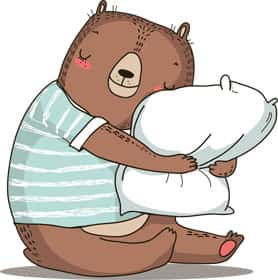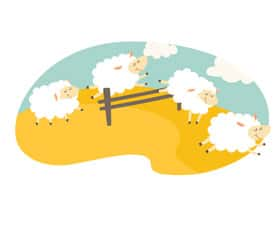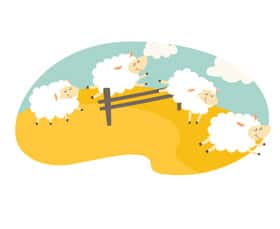Catching Zzzzzzzzzzzzzs
Here are 10 random facts about sleep from the National Sleep Foundation. 
• Man is the only mammal that willingly delays sleep.
• Sleep is just as important as diet and exercise.
• Generally, exercising regularly makes it easier to fall asleep and contributes to sounder sleep. However, exercising sporadically or before going to bed will make falling asleep more difficult.
• We naturally feel tired at two different times of the day—about 2 a.m. and 2 p.m. It’s this natural dip in alertness that is primarily responsible for the post-lunch dip.
• Divorced, widowed and separated people report more insomnia.
• Shift workers are at increased risk for a variety of chronic illnesses such as cardiovascular and gastrointestinal diseases, according to the International Classifications of Sleep Disorders. In addition, the body never adjusts to shift work.
• Snoring is the primary cause of sleep disruption for about 90 million American adults.
• 82 percent of health care professionals believe it’s the responsibility of both the patient and the health provider to bring up symptoms of insomnia during an appointment.
• Rates of insomnia increase as a function of age, but most often the sleep disturbance is attributable to some other medical condition.
• Scientists still don’t know—and probably never will—if animals dream during REM sleep, as humans do.
5 Ways Sleep Improves Your Life 
Adults need seven to nine hours of sleep a night, but do you know why? Here are five ways your mind and body benefit when you get a good night’s sleep.
1. You’re better able to focus and learn. When you have a good night’s sleep, it’s easier to maintain your attention on something and to learn and remember it.
2. You’ll feel happier. When you’re sleep deprived, your emotions are harder to control, you feel more stressed and it’s tougher to cope with upsetting matters.
3. You’re more productive. At work, you’ll notice you move through tasks faster and make fewer mistakes.
4. You’re less hungry. Sleep helps control two important hormones—ghrelin which makes you feel hungry and leptin, which makes you feel full. When you don’t get enough sleep these hormones don’t work properly and you feel hungrier. This is why many people who are sleep deprived struggle with their weight.
5. You won’t get sick as often. Getting enough sleep helps keep your immune system strong and fights off colds and other infections. Long term, getting enough sleep reduces your risk of heart disease, diabetes and other serious diseases.
Mid-Life Night Bliss 
Are hot flashes or night sweats keeping you from getting a restful night’s sleep? Night Bliss, a bed fan that works with most bed styles, offers instant relief on demand with cool breezy air in only three seconds. Manufactured in Petaluma, Night Bliss grew out of a loving collaboration between Ginny and her inventor-husband, Mike Rand.
During their marriage, the couple always enjoyed cuddling at night, but when Ginny began experiencing hot flashes at mid-life, the snuggling ended. Her doctor suggested prescription medication, which she tried for a while, but she wanted an alternative to taking hormones. As a result, Mike began looking for a practical solution, and developed a low profile, powerful fan unit that sits on the end of the mattress under the top sheet, near the feet. When operating, it inflates the user’s bedding with the force of the fan’s airflow. “I call it the tunnel of pleasure,” says Ginny. “It’s safe, simple and sturdy,” adds Mike, founder and president of Night Bliss. Though it was created for women experiencing hot flashes at mid-life, Night Bliss also offers models designed to relieve different types and severity of hot sleep discomfort, starting at $179. Visit the Night Bliss booth at the Women’s Expo on Saturday, Oct. 28, at Graton Resort and Casino Ballroom in Rohnert Park. www.nightbliss.com
Author
-

Karen Hart is the editor of NorthBay biz magazine, keeping her finger on the pulse of the North Bay, directing content and leading day-to-day operations of the editorial team. An award-winning writer, Karen brings more than 30 years of experience to the position. She is a member of the California Writers Club, and serves on the Journalism Advisory Council at Santa Rosa Junior College. She moved to Sonoma County in 2000, and she’s here to stay.
View all posts




